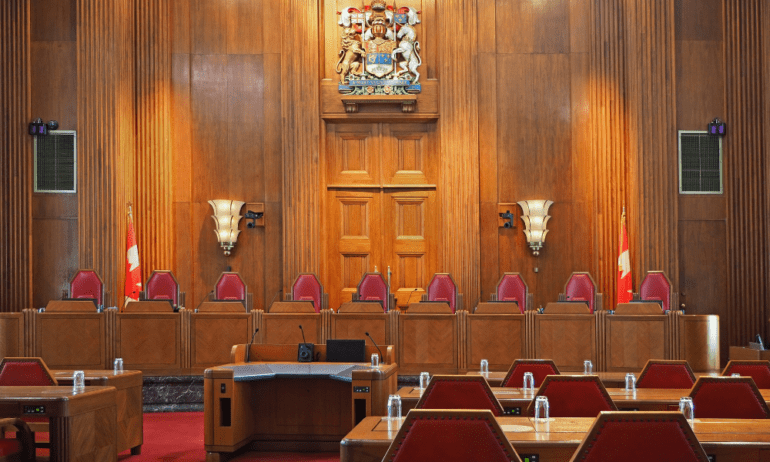TL;DR:
- AI-generated fake legal cases discovered in a B.C. courtroom, marking Canada’s first known instance.
- Lawyers express concerns about the impact on the legal community, emphasizing the need for rigorous fact-checking.
- Chong Ke, the opposing lawyer, used AI chatbot ChatGPT to prepare legal briefs, leading to the submission of non-existent cases.
- AI “hallucination” problem is also observed in the U.S. legal system, raising doubts about judgment accuracy.
- Legal experts in Canada advise caution when using AI tools and warn of potential consequences for misuse.
- The Law Society of BC issued warnings regarding AI use, while courts have taken measures to address the issue.
- Concerns arise about the possibility of undetected false cases in the Canadian justice system.
Main AI News:
In a groundbreaking revelation that has sent shockwaves through the Canadian legal community, a recent civil case in the B.C. Supreme Court has exposed the emergence of artificial intelligence (AI) crafting fictitious legal cases. Lawyers Lorne and Fraser MacLean made this startling discovery when they encountered fraudulent case law submitted by their opposing counsel, Chong Ke. This unprecedented incident has far-reaching implications for the legal system, raising concerns about the accuracy and integrity of judgments and the potential waste of resources.
Chilling Impact on the Legal Community
Lorne MacLean, K.C., expressed his concerns, stating, “The impact of the case is chilling for the legal community.” He emphasized the critical need for fact-checking AI-generated materials, highlighting the potential existential threat to the legal system if inaccuracies go unchecked. Such oversights can result in financial losses, resource misallocation, and erroneous judgments, ultimately jeopardizing the credibility of the legal system.
A High-Stakes Family Matter
The case in question revolved around a high-net-worth family matter with the best interests of children at its core. Lawyer Chong Ke allegedly employed ChatGPT, an AI chatbot, to prepare legal briefs supporting the father’s request to take his children to China for a visit. However, it led to the submission of one or more non-existent cases to the court.
Apologies Amidst Tears
Chong Ke, upon realizing the gravity of her error, expressed remorse and apologized to the court. She left the courtroom with tears streaming down her face but declined to comment further. This incident highlights the need for legal professionals to exercise caution when relying on AI technologies.
The Specter of AI “Hallucination”
AI chatbots, such as ChatGPT, have been known to generate seemingly plausible yet inaccurate information, a phenomenon referred to as “hallucination.” This issue has already surfaced in the U.S. legal system, causing embarrassment for lawyers and casting doubts on the legal system’s reliability.
A Wake-Up Call for Canadian Lawyers
Legal experts warn that the arrival of such technology and its associated risks demand heightened vigilance among Canadian lawyers. Robin Hira, a Vancouver-based lawyer, advises against using ChatGPT for research and suggests it should only be employed for sentence drafting, with a thorough review afterward. Ravi Hira, K.C., underscores the potential consequences for misusing AI technology, including facing costs, contempt of court, and disciplinary actions from the law society.
Legal Society Warnings
The Law Society of BC issued a warning about AI use and provided guidelines three months ago. It remains to be seen whether they are aware of the current case and what discipline Chong Ke may face. The Chief Justice of the B.C. Supreme Court and Canada’s federal court have also taken steps to address AI usage.
Unveiling the Tip of the Iceberg
As MacLeans plan to request special costs related to AI-generated content, Lorne MacLean expresses deep concern. He wonders if this case is just the beginning, raising the unsettling question of whether other false cases have already infiltrated the Canadian justice system, escaping detection.
Conclusion:
The emergence of AI-generated fake legal cases in Canada highlights the critical importance of ensuring the accuracy and reliability of AI-generated content in the legal profession. This incident serves as a stark reminder to legal practitioners to exercise caution and thorough review when utilizing AI technologies in their work. It also emphasizes the need for continued regulatory oversight and education within the legal market to safeguard against potential misuse of AI and maintain trust in the legal system.

